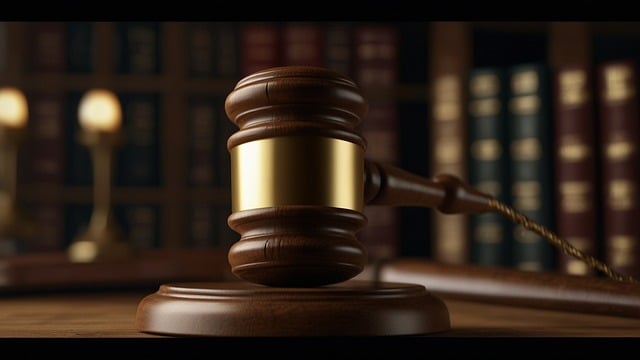When a driver is suspected of drunk or drugged driving, law enforcement may impound their vehicle under local Drug Interaction and DUI Law regulations. Understanding this process, including rights and legal procedures, is crucial for fair treatment. Impounded cars are seized as evidence, and individuals face specific rights like the right to request a hearing. Securing the release of these vehicles requires gathering documentation and consulting a specialized DUI lawyer. After completing a program, the post-release phase involves counseling, support groups, and community service to regain sobriety and driving privileges while clearing criminal records.
In many jurisdictions, impounded vehicles linked to DUI charges can pose significant challenges for individuals seeking their release. This article delves into the complex interplay between impoundment laws and drug interaction scenarios in DUI cases. We explore your legal rights during vehicle seizures and provide practical strategies for securing car releases. Additionally, we discuss post-release considerations, offering a comprehensive guide to navigating this crucial phase, especially regarding Drug Interaction and DUI Law.
- Understanding Impounded Vehicles and DUI Laws
- The Impact of Drug Interactions on DUI Cases
- Legal Rights When Your Vehicle is Seized for DUI
- Strategies to Secure the Release of Your Impounded Car
- Post-Release Considerations: What Happens Next?
Understanding Impounded Vehicles and DUI Laws

When a driver is involved in an incident related to suspected drunk or drugged driving, law enforcement may impound their vehicle as part of the investigation and legal process. Impounded vehicles are those that have been seized and stored by authorities, often due to violations like DUI (Driving Under the Influence). Understanding the process and rights surrounding impounded cars is crucial for anyone facing such charges.
In many jurisdictions, Drug Interaction and DUI Law play a significant role in determining the fate of impounded vehicles. If an individual is arrested for DUI, officers may conduct tests to assess their state and determine impairment levels. These tests can include blood or breath analysis, which helps establish whether the driver was under the influence of alcohol or drugs. The results of these tests are pivotal in deciding if the vehicle will be released or impounded for further evidence collection. Knowledge of one’s rights and the legal processes involved is essential when navigating this complex landscape to ensure a fair outcome.
The Impact of Drug Interactions on DUI Cases

The presence of drugs in an individual’s system can significantly impact a DUI (Driving Under the Influence) case, especially when considering the complex nature of drug interactions. Drug interaction refers to the way different substances within the body react with one another, which can alter the effects of alcohol and lead to impaired judgment and coordination. This is particularly concerning in DUI cases as it can complicate the legal process and present unique challenges for both defendants and prosecutors.
In many jurisdictions, the law regarding drug interactions and DUI cases is stringent. If a driver is found to have consumed substances that interact with alcohol, it may strengthen the prosecution’s case, potentially leading to harsher penalties. Understanding these interactions is crucial as it helps individuals make informed decisions about their health and well-being, especially when facing potential legal repercussions. Awareness of drug interaction risks can also assist those who’ve been impounded due to DUI charges in making better choices to ensure their safety and avoid further legal troubles.
Legal Rights When Your Vehicle is Seized for DUI

When your vehicle is impounded due to a DUI arrest, it’s crucial to understand your legal rights. In many jurisdictions, you have the right to request a hearing to challenge the impoundment and potential forfeiture of your vehicle. This process allows you to present evidence and argue against the seizure, especially if there was a Drug Interaction and DUI Law violation.
Knowing your rights is essential as it can significantly impact the outcome of your case. You may be entitled to legal representation during this hearing, which can help navigate the complex procedures and ensure your interests are protected. Understanding these rights is the first step in navigating the legal process effectively after a DUI-related vehicle impoundment.
Strategies to Secure the Release of Your Impounded Car

When facing drug interaction and DUI law charges, securing the release of your impounded vehicle is a crucial step in navigating the legal process. One effective strategy is to gather all necessary documentation promptly. This includes proof of insurance, vehicle registration, identification documents, and any records related to the incident. Having these documents ready demonstrates your cooperation with authorities and can expedite the release process.
Additionally, understanding your rights under the law is essential. Familiarize yourself with the local procedures for impoundment and release, and don’t hesitate to consult with a legal professional who specializes in DUI cases. They can provide valuable insights into potential defenses and help you communicate effectively with law enforcement and impoundment facilities.
Post-Release Considerations: What Happens Next?

After successfully completing a Drug Interaction and DUI program, individuals often wonder what comes next. The post-release phase is crucial as it determines the future and ensures successful reintegration into society. One of the primary considerations is finding appropriate housing and employment opportunities, which can be challenging for those with a criminal record. Supportive communities and programs that aid in these transitions are vital to help individuals rebuild their lives.
Additionally, ongoing counseling and support groups play a significant role in maintaining sobriety and managing any underlying issues that contributed to the DUI. Staying compliant with local laws and participating in community service can also help individuals demonstrate their commitment to change. Understanding the complexities of Drug Interaction and DUI Law is essential, as it dictates the steps needed to regain driving privileges and clear one’s record.
Understanding the legal intricacies surrounding impounded vehicles and DUI cases is crucial for ensuring your rights are protected. Drug interactions can significantly impact these situations, making it essential to recognize their effects on your case. By knowing your legal rights from the onset, you can employ effective strategies to secure the release of your vehicle promptly. After recovery, staying informed about post-release considerations is vital to navigating the remainder of your DUI charges successfully. Remember that with the right approach and knowledge of drug interaction and DUI law, you can defend your rights and move forward with confidence.






